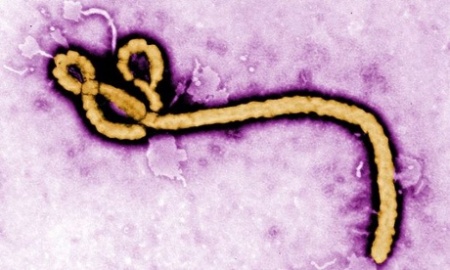
The Ebola pandemic which began in May is garnering world wide attention as the disease, which has killed over 670 people in West Africa over the last two months, continues to spread.
Although there have been no outbreaks in the UK so far, Foreign Secretary Phillip Hammond has said that the government is concerned over the outbreak and are ‘taking it very seriously’.
UK border staff have stated that they feel ‘unprepared’, to deal with people who are potentially carrying the disease into the country, although Border Force itself has said that the staff has been fully trained.
The main areas affected are Sierra Leone, Guinea and Liberia where attempts to stop the virus from spreading outside of rural areas have been ineffective; although it was thought the spreading of the disease was under control after the first outbreaks earlier this year, hundreds of people have contracted the disease since then.
Aid workers in West Africa have been called home, in order to prevent them from contracting the disease. Over 100 international aid workers have contracted the disease half of whom have died as a result.
A few cases have been reported in whereby the disease which has spread outside the nations mostly affected. A US man, who had been travelling from Liberia to Nigeria on business contracted and consequently died from the Ebola virus after falling ill on a plane.
Another Ebola victim, a US aid worker will be to a hospital in the US for treatment. They will be kept in an isolated, high security unit at Emroy Univerisy hospital in Atlanta.
Symptoms
Specialists have said that that the symptoms of Ebola, which include high fever, headache, joint and muscle pain and internal and external bleeding, have an incubation period of up to 20 days and the disease has 90% mortality rate.
Ebola is spread through contact with an infected person’s bodily fluids, and thus the disease is more likely to be spread in places such as hospitals
There is currently no cure for Ebola, which has killed over 2000 people since it first appeared in 1976. The current outbreak is the worst to date, and there are fears that a global outbreak may occur. Sierra Leone’s president where over 200 people have died from the disease, has declared a public health emergency while the World Health Organization along with several West African leaders are currently putting together a $100 million response plan.
The British Red Cross has also deployed specialist to assist communities affected by the Ebola outbreak.
Mandeep Mudhar, a Spokesman for the charity stated: The Red Cross has already deployed several teams and delegates to the affected countries since the beginning of the outbreak. We know from experience that our health and hygiene promotion work makes a real difference to communities and has helped curb the spread of Ebola.”
“Red Cross teams are taking to the streets and villages daily, educating the public through songs and theatre performances, on how to respond to the outbreak their communities,” he added.








